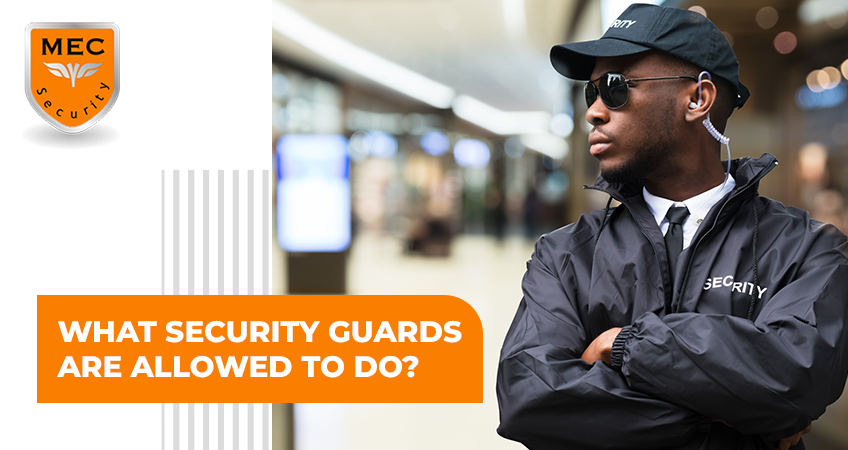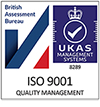In today’s fast-paced world, the role of security guards has never been more crucial. They are often the first line of defence in protecting property, assets, and people. However, there is sometimes confusion about what security guards can and can’t do legally.
This guide aims to clear up any misconceptions and provide detailed insights into the duties and responsibilities of a security guard, especially of interest to business owners, event organisers, construction site owners, high-risk individuals, and security personnel.
By understanding these limits and capabilities, companies like MEC Security can better serve their clients’ needs while adhering to legal standards.
General Responsibilities of Security Guards
Enforcing rules and regulations
Security guards are responsible for enforcing rules and regulations set by their clients. These rules could include safety protocols, access control procedures, or specific guidelines related to the property they are protecting. In some cases, security guards have the authority to detain individuals who violate these rules until law enforcement arrives.
Monitoring surveillance systems
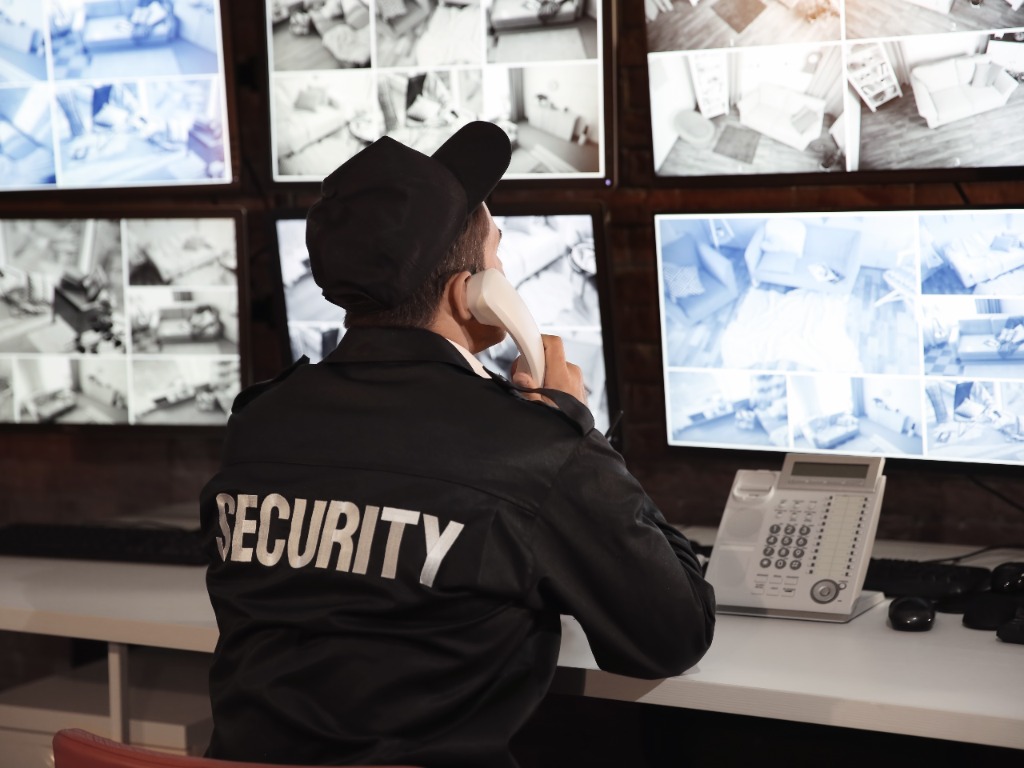
Another important responsibility of a security guard is monitoring surveillance systems. This could include CCTV cameras, alarms, or other electronic devices used for security purposes. By constantly monitoring these systems, security guards can quickly identify any potential threats or suspicious activity and take appropriate action.
Identity checks
Security guards are often tasked with verifying the identity of individuals entering a secured area. This can involve checking IDs or managing a guest list at an event. This procedure is crucial for upholding security, mitigating potential risks, and enforcing regulations. Security personnel verify the authenticity of identification documents provided by individuals, which commonly include government-issued ID cards, driver’s licences, passports, or access control cards specific to the premises.
Conducting patrols
Patrolling the areas under their watch is a fundamental duty of security guards. This could involve walking or driving around the property, checking for any signs of intrusion or suspicious activity, and reporting anything out of the ordinary to their superiors or law enforcement if necessary. Regular security patrols also serve as a visible deterrent to potential criminals.
Some security firms equip their personnel with advanced technology like CCTV cameras, motion sensors, and alarms to enhance their capabilities in this area.
Crowd control
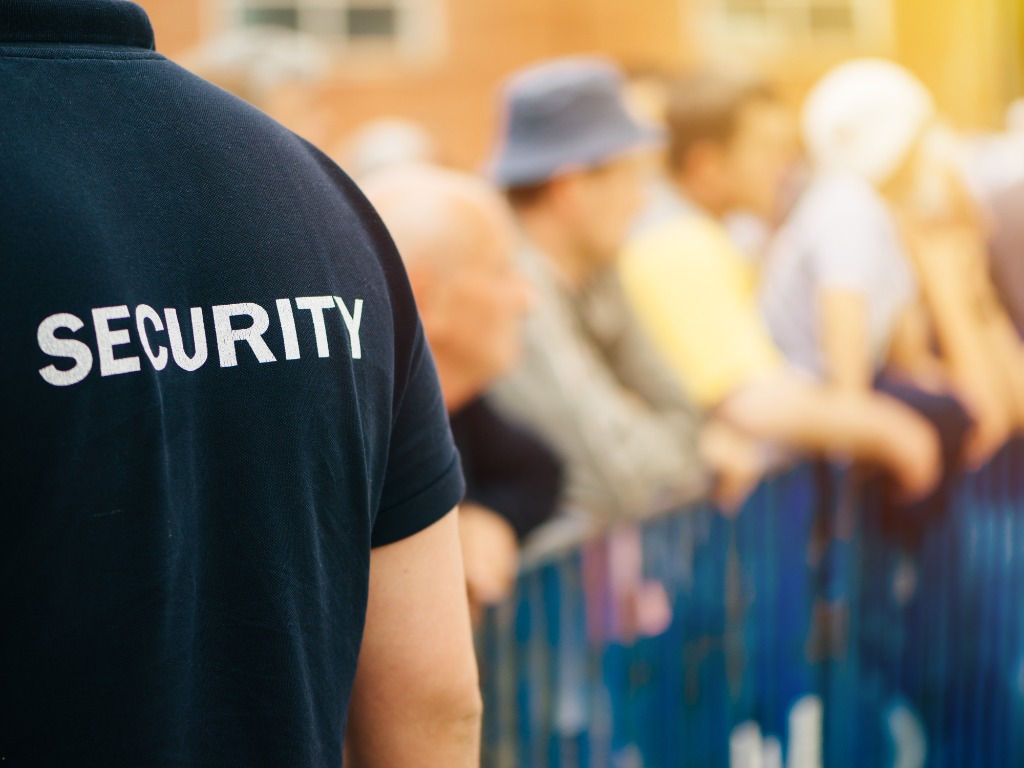
At events, concerts, or crowded areas, security personnel play a vital role in controlling the crowd and managing any potential risks that may arise. This includes directing traffic flow, maintaining order, and diffusing tense situations.
Emergency response
Security guards are often the first responders in emergencies, swiftly assessing the situation to determine its nature and severity, be it a fire, medical issue, or security breach. They promptly alert emergency services like the police, fire department, or medical personnel, providing vital information. Security guards convey precise details about the emergency, including its location, type, and any specific risks.
Incident reports
Documenting any incidents or irregularities observed during their shift is another key responsibility of security guards. These reports assist in legal cases and improve security measures. Guards detail the incident’s nature, time, location, and parties involved, along with any actions taken to resolve it.
What Security Guards Can Do
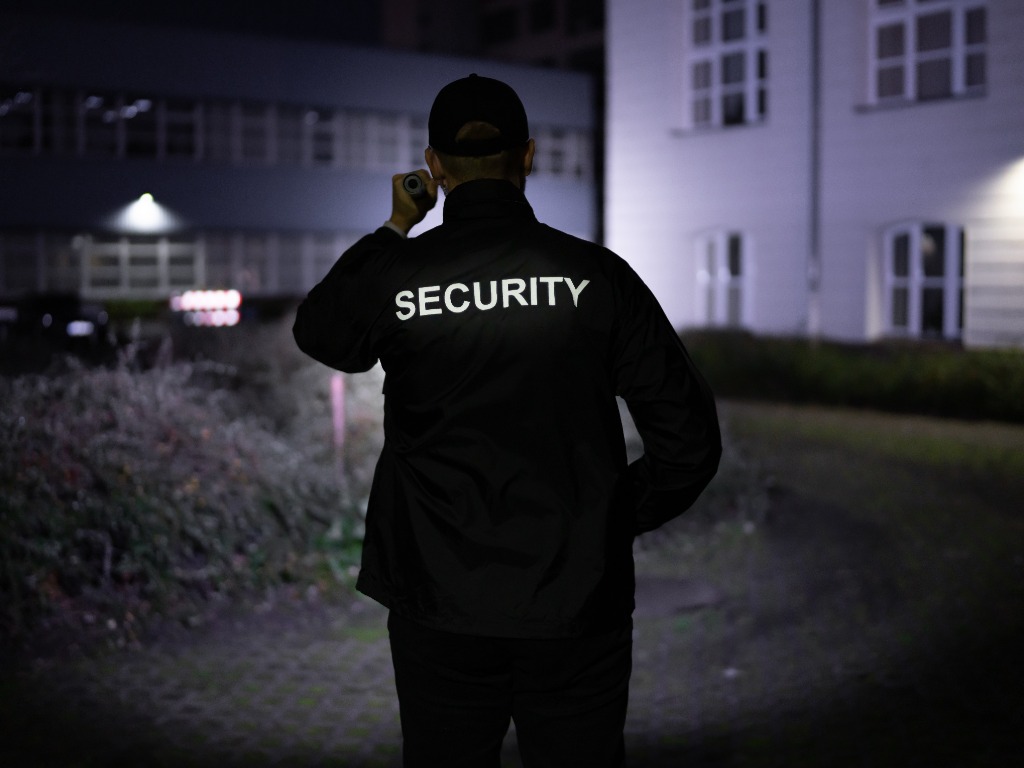
In the UK, the legal powers vested in security guards are clearly defined to prevent overstepping boundaries. These individuals do not hold the same authorities as police officers, but they can perform a number of actions within the law. Security guards can:
1. Request visitors to a property or event to leave
If someone is present on private property without a right or permission, a security guard has the authority to ask them to leave. Failure to comply could allow the security guard to remove them using reasonable force.
2. Detain individuals under reasonable grounds
Security guards can detain individuals suspected of committing or attempting to commit an indictable offence. This power is governed by Section 3(1) of the Criminal Law Act 1967 but must be exercised with caution, ensuring minimal necessary force and that law enforcement is informed immediately.
3. Seize and hold items for law enforcement
Where there’s reasonable grounds to suspect that stolen or prohibited items are present, security guards can retain these items until police arrive.
4. Self-defence and protection of others
Security guards are permitted to use reasonable force to protect themselves and others from imminent harm, under common law principles of self-defence.
It’s important to note that all actions taken by security guards must be justifiable, proportionate and lawful. Guards receive training to handle such situations properly, respecting the rights and freedoms of all individuals involved.
What Security Guards Can’t Do
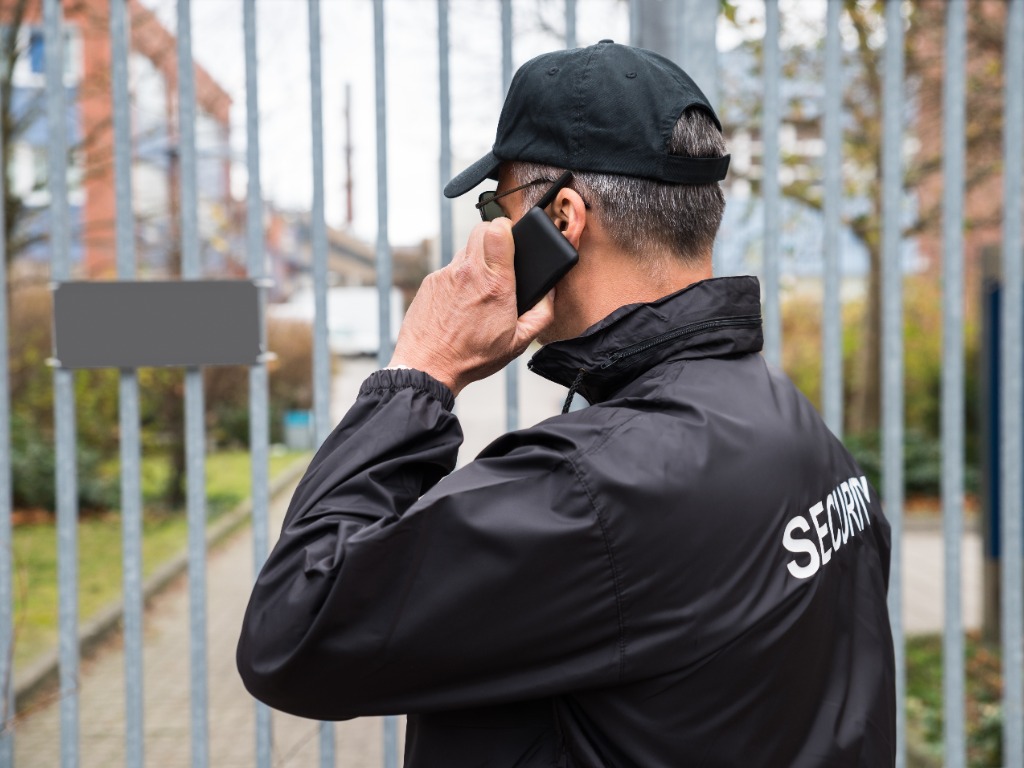
While security guards have specific rights and responsibilities, there are clear legal limitations to their powers.
Within the framework of UK law, security guards cannot:
1. Perform the role of a police officer
Security guards do not have the same legal authority as police personnel. They cannot arrest individuals; they can only detain under certain circumstances until law enforcement takes over.
2. Misuse the power to use reasonable physical force
Any force used must be the minimum necessary and proportionate to the threat faced. Excessive force can lead to legal repercussions for the guard and their employer.
3. Demand personal information or conduct personal searches
Security guards are authorised to perform searches on persons, belongings, or private property only when given consent, with a warrant, or under legal authority.
4. Enter a property without consent
They do not have the right to enter a property without the occupant’s permission unless specific circumstances permit it, such as a public safety concern.
5. Impersonate law enforcement officers
Security guards must always be clear about their role and not imply that they have police powers or authority.
6. Access personal data without proper authorization
There are restrictions around viewing or handling personal data, aligned with data protection laws and regulations.
7. Carry firearms
In the UK, only armed police officers have the legal authority to carry firearms. Security guards are not permitted to carry or use any weapons unless in exceptional circumstances with proper licensing and training.
The importance of adhering to these limitations cannot be overstated, as violation could result not only in legal consequences but also damage the trust and professional reputation of the security service provider.
FAQ
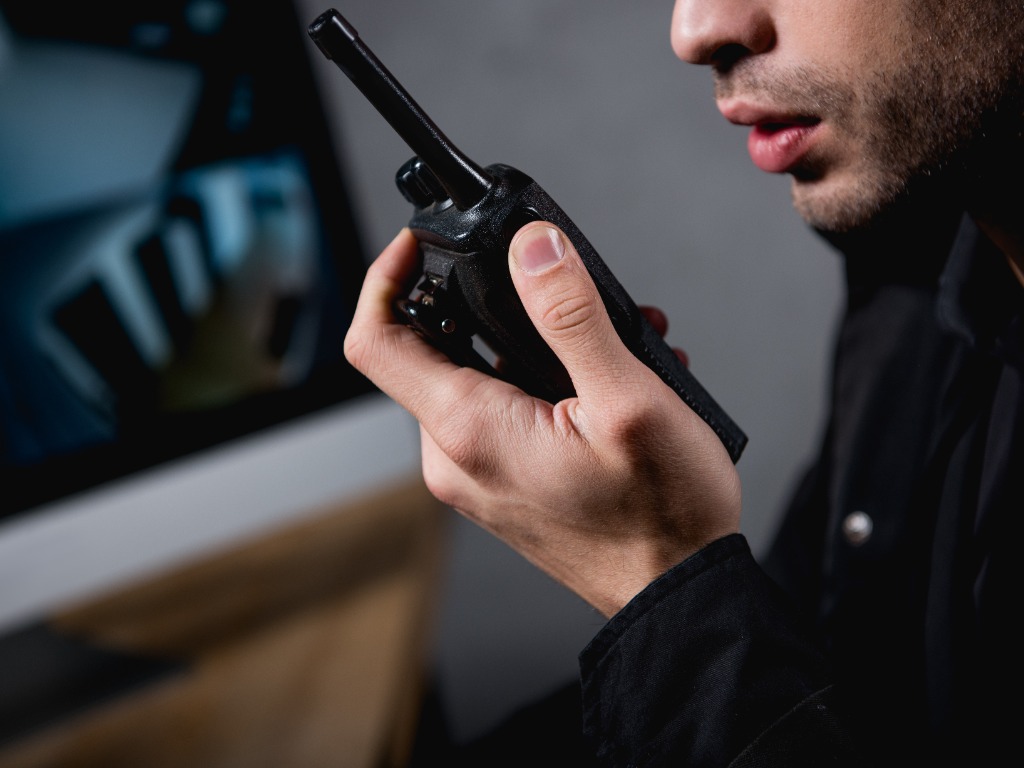
Can a security guard touch you?
Security guards typically possess restricted powers to make physical contact with individuals, which should be reserved for particular situations and carried out in compliance with legal boundaries. They are permitted to use appropriate force, which may involve physical touch, to safeguard themselves, others, or property from immediate threats or risks. There are circumstances where security guards are empowered to detain individuals suspected of engaging in illegal activities or breaching specific regulations. Moreover, security guards might offer physical aid, such as assisting individuals who are injured or distressed in emergency scenarios.
Can a security guard search you?
Security guards can search you or your belongings only if you consent to the search. In sensitive environments, like entering a concert or airport, your entry could be conditioned upon this consent.
Security guards may conduct searches without consent (forced search) in certain instances when they have valid reasons to believe that you are engaged in unlawful activities or breaching specific rules or regulations.
In most routine checks, security guards search clothing and bags to rule out the presence of prohibited or dangerous items.
Are security guards allowed to use weapons?
In most cases, security guards in the UK are not permitted to carry or use weapons. Only armed police officers have the legal authority to carry firearms. In exceptional circumstances, such as high-risk environments or specific job roles with proper licensing and training, security guards may be authorised to carry non-lethal weapons like tasers or batons. However, these instances are strictly regulated, and the use of any weapons must be within the boundaries of the law.
Can security guards detain you?
Security guards can detain individuals under certain circumstances. A security guard detain gives security professionals the authority to detain someone suspected of committing or attempting to commit an indictable offence until law enforcement arrives. This power is governed by Section 3(1) of the Criminal Law Act 1967 but must be exercised with caution, ensuring minimal necessary force and that law enforcement is informed immediately.
Additionally, security guards can detain individuals who refuse to leave a property without proper authorization or permission. Failure to comply with a security guard’s request to leave may result in being removed using reasonable force.
How much authority do security guards have?
While security guards do not possess the same authority as police officers, they are granted certain powers to protect the property and people they are hired to safeguard. Their exact authority can vary significantly depending on the local laws and the specific context in which they are working.
What is a citizen’s arrest?
A citizen’s arrest is a legal concept that allows any member of the public, including security guards, to detain someone suspected of committing an offence until law enforcement arrives. This power can be exercised when there are reasonable grounds to believe that a person has committed or is about to commit an indictable offence. However, this authority must be exercised responsibly and within the boundaries of the law, as any misuse can result in legal repercussions. In the UK, citizen’s arrest is governed by Section 24A of the Police and Criminal Evidence Act 1984.
It is important to note that security guards must be trained in using this power and follow proper procedures when making a citizen’s arrest to avoid unnecessary harm or legal consequences.
Conclusion
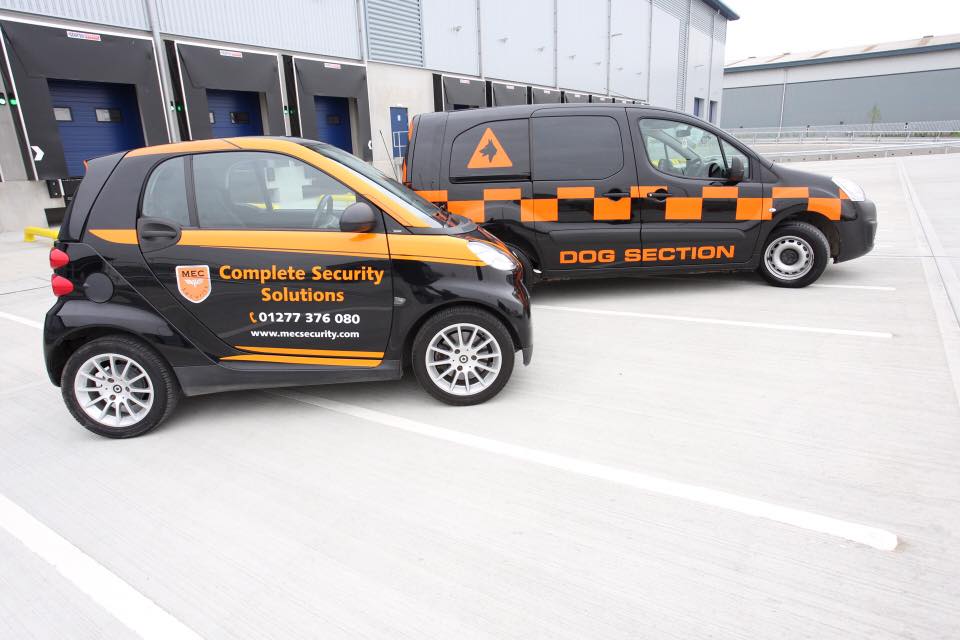
Understanding the duties and limitations of security guards is crucial for anyone looking to hire security services. Companies like MEC Security are dedicated to offering well-trained, professional security personnel who operate within the bounds of the law, ensuring both safety and compliance. Whether you’re a business owner, event organiser, or someone in need of security services, having clear expectations for what security guards can and cannot do will help create a safer, more secure environment for everyone involved.

 Call us:
Call us:
 Email us:
Email us:



